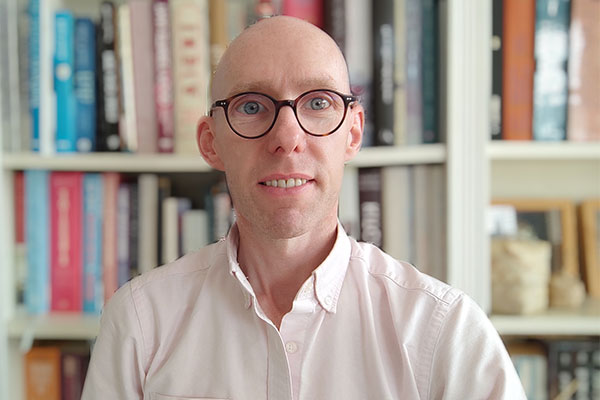Honoured To Become a Queen`s Nurse: Simon Hall Champions Holistic Care in the Community
In recognition of the dedicated work, Simon Hall, our Head of Clinical Rehabilitation and Community has done in community nursing, he was recently awarded the title of Queen`s Nurse.
Here Simon gives a unique insight into his experience of community nursing, what it means to him and how holistic care led by the patient, is so important.
We’re so proud to have Simon as part of our Clinical Community.
The Queen`s Nursing institute
The Queen`s Nursing Institute’s (QNI) seeks to raise the profile of community nursing and this amazing level of holistic care delivery, which can be easily overlooked. Their values champion all that is vital in good holistic care planning and delivery; Excellence, Inclusivity, Partnership, Independence, Advocacy, Legacy and Integrity.

The application process
Once a year, for a period of four weeks, the Queen`s Nursing Institute opens for new applications. Candidates must be a registered nurse with a minimum of five years working in the community. Candidate’s submissions need to demonstrate alignment to the QNI values and this needs to be supported by their line manager, and professional lead, as well as two clinical peers, to provide individual accounts of how, from their perspective the candidate demonstrates these values.
I was fortunate to have the full support and assistance of my colleagues within NHS Supply Chain, Chris Hassall Head of Rehabilitation and Community, Michelle Johnson Clinical Executive Director, Theresa Bowles Clinical Specialist, and Jo Norris Innovation Specialist, who each took time to write statements submitted directly to the QNI.
All applications go through a rigorous panel, and candidates are notified of the outcome three to four months after submission deadline.
Community care – how it differs?
Nursing in any environment is both a privilege and a challenge. I’ve worked across acute and community care, from emergency department, high care, to long stay rehabilitation, primary care and community services.
To me, whilst the fundamentals of good holistic nursing care do not change, the environment does impact the nurse – patient relationship. A person entering hospital becomes a “patient”, with their normal daily routine suspended. They become compliant to the sick role, having tests and investigations, monitoring in line with condition and trust`s policies and standards.
Community care differs significantly from this mindset. The person receiving healthcare is not a traditional patient in the acute care sense. They are in their own environment, and continuing with their daily lifestyle routine, the healthcare professional in this setting is a guest in the person’s home.
To me, this changes both care planning and care delivery. Rather than a patient being passive in care for example, having their observations taken four times a day, having meals at set times, having visiting at set times with healthcare professionals present 24 hours, 7 days a week to facilitate. In the community individuals are themselves – an active participant in care delivery. The healthcare professional is present for only a small part of their day, week, or month. Their duties to maintain care or treat patients, falls to the individual, with potential support from others.
What does this mean to me?
In my experience, this shift in care dynamic alters many aspects: communication between nurse and patient, goal setting and aims for care delivery, the treatment plan and the roles and responsibilities. What I mean by this is that, unlike acute care – where the focus is on treating and managing the acute condition that led to admission to hospital, enabling the person to return to their home environment.
The aim in community for acute and / or chronic conditions may be much wider reaching. From active treatment to symptom control and level or intensity of intervention, this becomes a discussion in which the individual often leads the nurse on their priorities. The outcome is a bespoke plan that best meets their objectives, while also ensuring that the individual, not the nurse, is the key contributor in their own health management. To me, this is the best expression of holistic care.
What being a Queens Nurse means to me?
I am exceptionally proud of my profession and of my background in community nursing. Having spent over 15 years nursing in community services, I have seen first-hand the difference to people’s lives the community care makes, and lasting impact, good care has to their family and friends, long after community services have been complete.
We all want to have the best lives, be well, and remain as independent as possible, with minimal disruption to our home and lifestyle. The role that community nursing can play in this should not be underestimated. The Queen`s Nursing Institute`s commitment to training, advocacy, and demonstrating this impact is vital.
With an aging society living for longer with greater, and more complex conditions, the value of the Queen`s Nursing Institute will only continue to grow. I’m honoured to be part of this fantastic institution.
